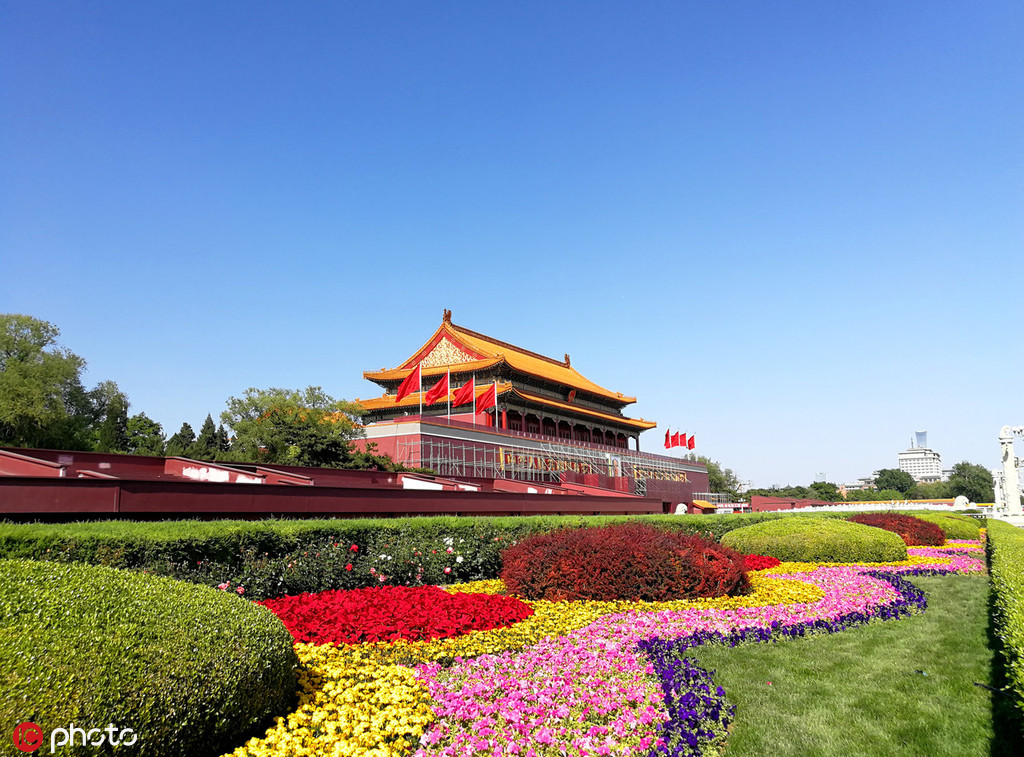Party leads governance modernization


To secure a nation's stability and people's welfare, the ruling party of a country must provide comprehensive, stable, effective and civilized governance. And to achieve this in China, the Communist Party of China has to synchronize and integrate reform and the advancement of various systems. During this process, the CPC leadership should provide the fundamental political guarantee to carry out the task, which the Third Plenary Session of the 18th CPC Central Committee has termed a "modernization of the country's governance system and governance capability".
The CPC has accumulated rich experience in modernizing the governance system and bolstering governance capability. The Party built the socialist system in accordance with the times, laying the fundamental political foundation and creating the systemic prerequisite for national development and social progress.
In particular, since the Third Plenary Session of the 11th CPC Central Committee in 1978, China has been implementing reform and opening-up, which in turn promotes socialism with Chinese characteristics and improves national governance.
As President Xi Jinping said in his address to mark the 40th anniversary of reform and opening-up, the arch goal of deepening reform is to perfect and develop socialism with Chinese characteristics and promote the modernization of the national governance system and governance capability. Since the 18th National Congress of the CPC in 2012, China has accelerated the modernization of the governance system and governance capability, achieving tangible results.
The Party has made many theoretical breakthroughs in national governance, and gathered sufficient political experience in practice, including in self-correction and solving complex problems. Which have supported the modernization of the national governance system and governance capability.
Besides, the CPC's governance power and mass base are the driving force and social premise of modernization of the national governance system and governance capability. Yet the modernization of the national governance system is not an easy task for a country as big as China.
The Party has developed strong governance capability with the passage of time, which is reflected in its noble governance objective, scientific governance theory, effective governance style, superior governance philosophy, strong administrative team and extensive mass support. In fact, the CPC has been able to manage governance problems well, be they everyday concerns or major issues, even crises.
Also, the entire society has welcomed the Party's strenuous efforts to serve the people. During the process of modernizing the national governance system and governance capability, governance power acts as the fundamental driving force while massive support from the people gives the CPC the strength to overcome obstacles.
Moreover, the CPC has found the right direction of modernizing the national governance system, and established the basic framework of the national governance system. China's governance system and governance capability have their distinct characteristics and strength. But to further promote and strengthen socialism with Chinese characteristics, China needs to improve the national governance system and governance capability.
First, the country should stick to the path of political development with Chinese characteristics. The report of the 19th Party Congress in 2017 said the political development path with Chinese characteristics is an inevitable outcome of the historical and theoretical logic of Chinese people's struggle, and a prerequisite for adhering to the Party's philosophy.
Second, under the Party's leadership, the people should continue to be the masters of the country and adhere to the rule of law. The 19th Party Congress report also makes it clear the CPC leadership is the fundamental guarantee for the people to be the masters of the country and national governance to be guided by the rule of law, with the former being the basic characteristic of socialist democracy and the latter the basic means of national governance.
Third, China's unique political form and advantage-socialist consultative democracy-should play an important role in national governance, as history tells us that consultative democracy creates ample space to highlight people's appeal.
Fourth, the relationship among the government, the market and society should be handled carefully and modernized by transforming government functions, streamlining the administration and delegating power to lower level departments, in order to improve the market economy mechanism and boost social innovation.
And fifth, China should actively participate in global governance, not least because the international community seeks it and China has made valuable contributions to the development of the world economy by helping build a community with a shared future for humankind.
Xu Wenxing is a lecturer at the School of Marxism, Beijing University of Chemical Technology, and Liu Dongchao is a professor at the Department of Literature and History, the Party School of the CPC Central Committee. The views don't necessarily represent those of China Daily.


































